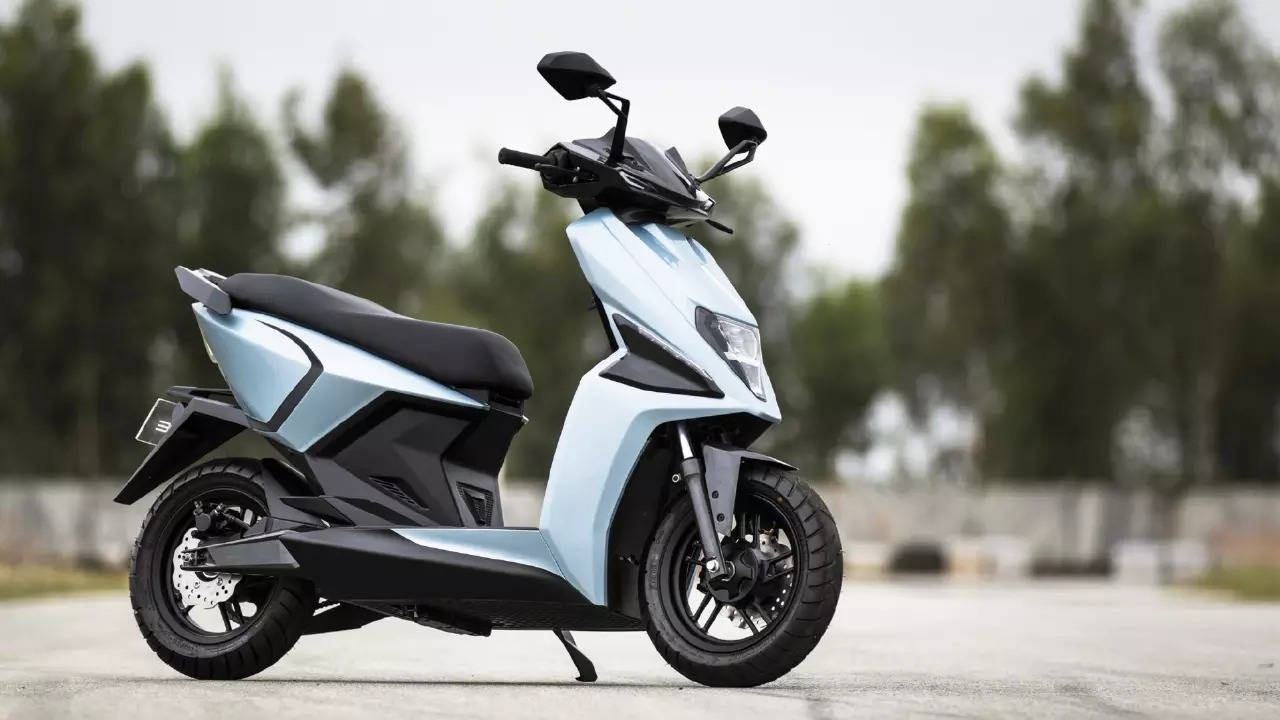
The entrepreneurship bug caught Bengaluru based Suhas Rajkumar very early in life. All of 25, he already has experience of three startups under his belt. The fourth one though is the most ambitious. He wants to build the biggest electric two wheeler factory in India upstaging even the likes of Bhavish Aggarwal of Ola.
While he considers himself to be a born auto buff, the idea of making electric scooters was almost accidental. In 2018, Rajkumar was scouting for a good scooter for his father and wanted to check out an electric model. Appalled by the lack of options, his father ended up buying the petrol TVS Jupiter, but the son had spotted an opportunity.
“I couldnt convince him (father) to buy an electric vehicle back then. He did try a few that were there in the market but did not like them and had greater trust in established brands like TVS and Honda,” Rajkumar says. “But i sensed there was an opportunity here and it rekindled my love for automobiles. I am inspired by Steve Jobs and Elon Musk and what they have done is solve a problem and disrupt the industry by tackling the root cause. That is also what we are trying to do here at Simple Energy.”
The trust and credibility of the established players that led to Rajkumar’s father opting for a TVS Jupiter, and the lack of experience of startups is a much debated aspect of India’s electric two wheeler landscape. It is often parroted by legacy players, none as emphatically as Bajaj Auto’s Rajiv Bajaj last October when he took potshots at the hype surrounding the new age players and the resilience that established players have displayed over half a century. Rajkumar is, however, encouraged by the snide remarks which he says proves startups like his are in the reckoning.
“I am not offended. I am happy as it acknowledges that we (the startups) are coming up. He (Bajaj) is recognizing that it’s time to react and take us seriously because you only react when it is starting to affect you. With his stature he doesn’t have to really care about us but he definitely did. That makes us mainstream. The legacy companies are discussing us.”
Some of Bajaj’s remarks do have a ring of truth to it. For all the hype, the startups still have to deliver the products on the ground and too many companies are starting to talk too big with no substance to back it up. Flush with cash from investors in an unregulated financial sector, startups are also not scrutinized for their profitability as much as listed companies like Hero MotoCorp, Bajaj, TVS or Royal Enfield are. Valuations have also skyrocketed as investors seek to reward “cash burn” model over “cash flow.” Much to the frustration of the established order.
“We have to be profitable absolutely, but it is not only about that,” Rajkumar counters. “It is also about potential and how sustainable will the business be after 20 years. A Tesla is more agile than a 100 year old company. If Musk decides to build an electric airplane today, he can do it and his investors will back him up. Can an established player do it? No, because they would need to get it approved internally and there is a whole bureaucracy that needs to be convinced. You have to be a cheetah even if you are an elephant. Tesla is like that.”
The valuation is based on your market cap and size and the potential over the next 20-25 years. That is how you justify it and it is not easy–we have to answer 10,000 questions before we get the valuation. The investors are smart people and it is never a cakewalkSuhas Rajkumar
“The valuation is based on your market cap and size and the potential over the next 20-25 years. That is how you justify it and it is not easy–we have to answer 10,000 questions before we get the valuation. The investors are smart people and it is never a cakewalk,” he adds.
For a newcomer, Simple Energy also has a lot of questions to answer in the next few months. Perhaps more than the others, given the big targets it has set for itself. Its MOU with the Tamil Nadu government is outlandish to say the least. It is setting up its first factory with a capacity of 1 million units next year to be followed by a second with a jaw dropping 12.5 million unit per annum capacity by 2023. Even the world’s largest two wheeler company–Hero MotoCorp, does not have this kind of capacity even after three decades of being in business. At the same time, while it announced the price and specs of its maiden scooter–Simple One, on August 15, it is yet to begin deliveries. This is again something that Bajaj pointed out in his half an hour monologue against the wannabes in the business.
“In the traditional way business is done, yes the scooter should have been on the road by now but for startups developing vendors is a challenge. So we launch the product to showcase to the the public and while internally we are ready with the product, we need time to work with the vendors,” Rajkumar says. “That is the problem as a newcomer. No vendor takes us seriously but if you are one of the established players, the CEO of the company will pay you a visit at your office. They get prioritized over us but that is fine. They have earned it over the years. So the first time, it is a challenge that will help us build credibility and relationships in the industry. Henceforth it will be smoother. The story starts with the Simple One.”
The designer son of a middle class civil engineer is dreaming big. It is a brave new world and there are no guarantees either way.
Also Read:
















